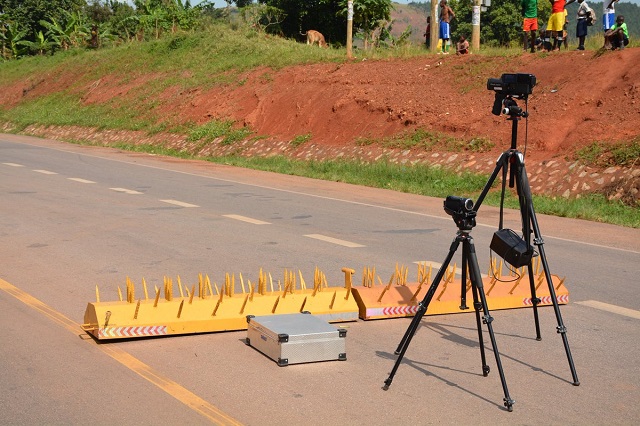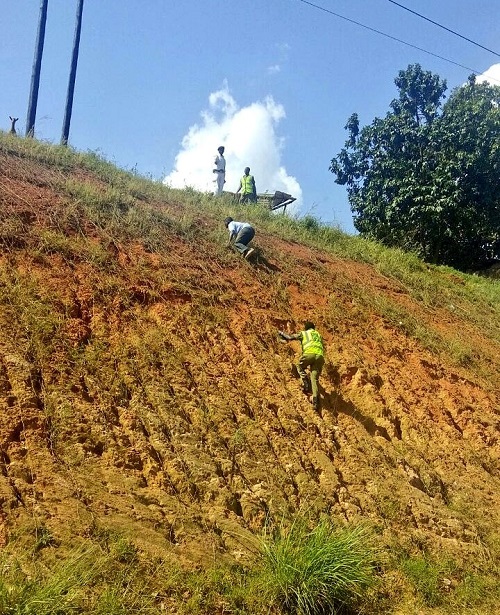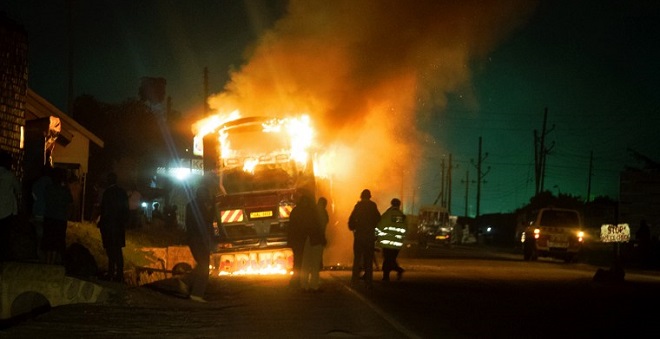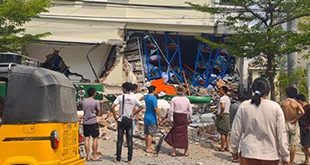
Witchcraft, poor roadwork and dangerous driving — all have been blamed for the killer highway whose users will often turn to prayer before taking the road.
Mpigi, Uganda | AFP |
Wearing pristine white with her woollen socks pulled high, Ugandan traffic police officer Edith Nanteza exudes natural authority at the roadblock, barely lifting a hand as she waves motorists over.
This is no routine exercise. Nanteza is on the frontline of operation “Fika Salama” — Swahili for “arrive safely” — a high-profile attempt by the government to regain control of what the country fears has become the planet’s deadliest highway.
From the top of a hill, Nanteza surveys the road, a heat haze shimmering over the tarmac highway stretching into the distance.
“Over 200 people have died on this road since January. It’s been a massacre,” she says.
By comparison, Bolivia’s Yungas Road, a notorious mountain pass better known as “Death Road”, averages between 200 and 300 deaths per year.
That would put the 130-kilometre (80-mile) Kampala-Masaka highway on at least similar ground with its 200 dead in the first eight months of 2016.
Witchcraft, poor roadwork and dangerous driving — all have been blamed for the killer highway whose users will often turn to prayer before taking the road.
In the local police station in Mpigi, Nanteza points to the mangled wreckage piled up in the yard.
“Recently 21 people, including a child, died in a single accident,” she says while shooing away a goat.
“A car tried to overtake the vehicle in front but collided with a trailer truck which lost control and crashed into two full minibus taxis.”
Nsubuga Shabal, who was travelling to Kampala with his wife and seven-year-old son, was caught up in the carnage.
“My wife died on the spot. Our child is now living with relatives. He’s still injured and needs treatment but I can’t provide anything since I’m still recovering,” he says.
“And I lost my job because I can’t walk properly due to my injuries.”

‘Human error’
Assistant Commissioner of Police Sarah Kwibika is in charge of operation Fika Salama.
“Ninety percent of the accidents are due to human error,” she says.
“Speeding, risky overtaking on bends, overloaded trucks, unroadworthy vehicles and driving while drunk are the main causes. It’s all about driver behaviour.”
Others claim the road itself, which was upgraded with the help of international donors, is dangerously inadequate. The busy highway was resurfaced in the late 2000s, then widened with extra lanes to reduce accidents.
Kristian Schmidt, who heads the EU office in Uganda, this month demanded action after a government-commissioned report found that more than a billion US dollars had been misappropriated in corrupt roadwork deals in the last seven years.
Last year, all 900 road authority employees were sacked on the instructions of Uganda’s President Museveni.
Now, with the death toll rising, the concern is people might avoid the ‘highway to hell’ altogether.

The devil’s work
The Kampala-Masaka road provides essential access from the Kenyan coast through Uganda to Democratic Republic of Congo, Rwanda and Burundi.
But despite its importance as a conduit for local traffic, regional transportation and tourism, people are increasingly afraid to travel on it.
Last month, a UN trailer which was carrying crucial food relief to Burundi crashed off the road, destroying a house.
And tourists on safari who are hoping to see rare mountain gorillas near the Uganda-Rwanda border are now opting to fly there by light aircraft rather risk travelling on the ill-fated highway.
The high stakes have even compelled some religious groups to take extreme action.
By the roadside, Reverend Bibiru pours oil over the painted lines as 15 of his followers chant and pray.
“This is the first time we have conducted a road exorcism,” he says.
“A lot of witchcraft took place while the highway was being built, that’s why so many people are dying here,” he explains.
“It is the devil who has made this road so dangerous.”
Legal crackdown
Commissioner Kwibika prefers a more earthly solution.
“We will prosecute, without mercy, every driver we find breaking even the smallest regulation,” she vows.
“No exceptions.”
Penalties for offences such as driving without a permit tend to be around $50, so not a strong disincentive, while prosecution for more serious offences is very slow, meaning none of the recent lethal cases have gone to trial yet.
Suddenly, the commissioner is interrupted by the phone.
It’s Officer Nanteza calling to report another serious accident.
Kwibika gasps. Among the injured is her own cousin, another victim of the death-trap highway.
 The Independent Uganda: You get the Truth we Pay the Price
The Independent Uganda: You get the Truth we Pay the Price



